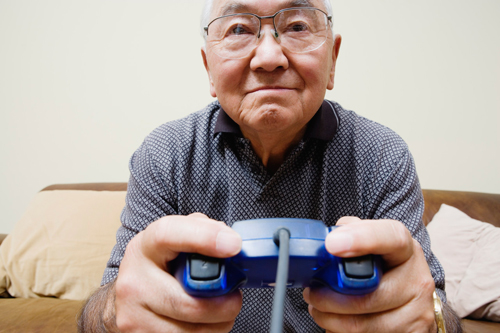For a long time, neuroscientists have regarded video games as a form of brain candy. Played in excess, they were thought to erode short-term memory and attention span, and lead to other kinds of mental decay. And it’s been well documented that multitaskers—particularly older multitaskers—perform worse on cognitive tasks than those who live by the old Zen adage of “eat while you eat, sleep while you sleep.” But yesterday the New York Times reported that scientists at the University of California, San Francisco, have discovered what might be a cognitive fountain of youth. It turns out that the poison is the cure: a video game that had the brains of study participants from 60 to 80 years old performing as dexterously as 20-year-olds—with prefrontal cortex activity and brain wave patterns to match. And it achieved this through the controlled use of multitasking.
A license to play Angry Birds at all hours? To text, surf the Internet, and check email around the clock? Not exactly. “My laboratory has shown that older adults have this exquisite sensitivity to interference, and by that I mean distractions and multitasking,” the study’s lead investigator, Adam Gazzaley, told the Wall Street Journal in a video interview. Created by Gazzaley and his team as part of a 4-year study, the video game in question, Neuroracer, trains players to dodge oncoming traffic, keep track of certain road signs, and ignore others—precisely the kinds of tasks that lead to cognitive overload in the real world. Amazingly, oldsters trained in the game were better players than untrained youngsters.
According to the Times report, not only did study participants improve their attention span, short-term memory, and multitasking abilities, but these skills carried over to other tasks and the gains held for six months after the training ended. This last point is key, since scientists say that most so-called brain-training software programs come up short on the transfer-of-skills front.
News of the results has rocked the neuroscience world and made the cover of the journal Nature, out today. We at Rewire Me would like to thank the University of California scientists for confirming what we’ve always believed: it’s never too late to rewire your brain.



